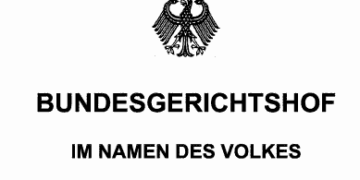The increasing importance of innovative cooperation projects in a competitive environment requires a reliable contractual basis that protects all parties involved and sets out clear rules. Innovative companies are faced with the challenge of structuring complex development projects as partners while at the same time protecting their individual interests. Joint Development Agreements (JDAs) offer a structured solution for precisely defining development goals, timetables and financial framework conditions. The agreements not only open up scope for pooling competencies, but also ensure that all parties are clearly assigned their rights and obligations. The principles of contractual freedom, as set out in Sections 311 et seq. BGB, as well as industry-specific requirements, play a decisive role. Careful drafting avoids subsequent disputes and creates trust in the collaboration. The challenges in the innovation sector often lie in the dynamic market development and the need to react flexibly to changes. At the same time, a comprehensive risk analysis ensures that unforeseeable events are also adequately taken into account. The integration of non-disclosure agreements and protective clauses is another key aspect that appears indispensable in a global competitive environment. The practical drafting of contracts thus forms the foundation for the success of joint development projects. The involvement of interdisciplinary expertise – be it from a legal, technical or economic perspective – proves to be the key to optimal protection. The practice-oriented application of legal regulations helps to ensure that the contracts are not only formally correct, but also resilient in day-to-day business. Clients benefit from legal advice that takes all eventualities into account and develops individual solutions. This article is intended to provide an overview of the most important aspects that need to be considered when drafting JDAs. In conclusion, it shows that a well-founded and flexible contract design not only offers legal certainty, but also contributes significantly to the competitiveness of companies.
Contractual basis of joint development agreements: structure, objectives and success factors
The basis of every joint development agreement is a precise contractual arrangement that defines the framework for successful cooperation. The services, timetables and financial modalities to be agreed are made clear from the outset. The contracting parties have the option of making individual agreements on the basis of the freedom of contract enshrined in Sections 311 et seq. BGB (German Civil Code). In practice, this proves to be particularly valuable, as it allows specific industry peculiarities and technical details to be integrated. A clear definition of the project objectives ensures that all parties can realistically assess and implement their expectations. At the same time, contractual adjustment clauses provide the necessary flexibility to react to unforeseen developments. The definition of milestones and performance indicators serves as a continuous success control and creates transparency in the course of the project. The regulation of investment obligations and resource allocations is also dealt with in detail in order to minimize financial risks. Transparent documentation of all contract components enables disputes to be resolved in a comprehensible manner at a later date. The integration of non-disclosure agreements protects confidential information and strengthens mutual trust. In addition to the standard clauses, individual provisions are often agreed that meet the specific requirements of the respective project. Close coordination between the contracting parties, supported by expert legal advice, forms the basis for a robust contract. The contractual arrangements also take international aspects into account when cross-border projects are realized. The systematic analysis of potential risks and opportunities is an integral part of the draft contract. This holistic approach ensures that all relevant interests are taken into account in a balanced manner. The practice-oriented contract design thus creates a reliable framework that does justice to the dynamic innovation environment.
Liability issues in joint development agreements: risk distribution, claims for damages and legal protection
The regulation of liability issues plays a central role in joint development agreements, as it clearly defines the economic responsibility of the parties in the event of an error. When drafting the contract, it is essential to regulate all liability aspects in such a way that a fair balance is achieved between the contracting parties. With reference to Sections 280 and 281 of the German Civil Code (BGB), the scope of possible claims for damages is contractually specified. A differentiated approach, particularly with regard to gross negligence and intentional acts, is essential in order to avoid disputes at a later date. Limitations of liability are often agreed in order to keep the entrepreneurial risks within reasonable limits. Equally important is the inclusion of indemnification and recourse clauses, which reduce the economic risk in the event of unforeseen events. The detailed contractual documentation of all liability provisions also creates the basis for transparent dispute resolution. As part of a comprehensive risk analysis, potential loss scenarios are systematically identified and contractually mitigated. A clear allocation of responsibilities helps to avoid confusing liability distributions in the event of undesirable developments. Legal practice shows that a precise liability regulation not only helps to avoid legal disputes, but also strengthens the trust of the parties in the long term. By involving experienced legal advisors, complex liability issues are structured in such a way that they meet both the legal requirements and the individual needs of the contracting parties. The agreement of liability limits and the regulation of indirect damages ensure the economic progress of the project. Clients benefit from a contractual concept that anticipates all eventualities and is flexibly adaptable. The transparent structuring of liability issues is therefore an essential element of a risk-minimized contractual relationship. Ultimately, a balanced liability arrangement contributes significantly to the long-term stability and success of joint development projects.
Property rights and intellectual property in joint development projects: Transfer of rights, license models and copyright
The issue of intellectual property protection and the allocation of property rights is as important as it is complex in joint development projects. A precise contractual regulation determines whether and to what extent newly arising property rights are assigned to the individual parties. The Copyright Act (UrhG) provides the basis for this, which is supplemented by additional regulations in patent law and trademark law. As part of a joint development agreement, the use of existing property rights is usually also regulated in detail. The granting of license rights is a tried and tested instrument for ensuring commercial exploitation even after the project has been completed. A clear modality for the transfer of rights prevents subsequent ambiguities and disputes between the contractual partners. Reference is often made to international property rights regulations when cross-border collaborations are realized. The agreement of remuneration modalities in connection with the property rights helps to ensure that economic benefits are distributed fairly. Furthermore, the transparent contractual documentation of license and usage rights strengthens mutual trust. The integration of arbitration or mediation clauses offers a practicable way of resolving potential conflicts out of court. In legal practice, it has been shown that well-founded regulation of intellectual property contributes significantly to ensuring the success of a project. Close cooperation with specialized legal advisors ensures that even complex issues in the field of intellectual property are adequately addressed. The practical coordination of property rights issues creates the necessary basis for the sustainable economic use of innovations. A holistic view of rights and licensing relationships also safeguards the future development of technologies. Ultimately, precise contractual protection of intellectual property proves to be a key success factor that ensures the continued existence and competitiveness of joint development projects.
Additional contractual challenges in joint development agreements: flexibility, adjustment clauses and project continuity
In addition to the classic issues of contractual principles, liability and property rights, there are other challenges in the context of joint development agreements that require forward-looking and flexible contract design. The dynamic nature of innovative projects makes it necessary to draft contractual provisions in such a way that they can react appropriately to changing framework conditions. Adjustment clauses offer the parties the opportunity to modify the content of the contract in the event of changing circumstances without having to renegotiate from scratch. The clear regulation of terms, extension options and termination modalities ensures a structured exit if a project does not achieve the agreed objectives. Furthermore, the integration of milestones and performance indicators enables continuous monitoring of success, which serves as an early indicator of the need for adjustments. The careful regulation of investment risks and the definition of remuneration and profit-sharing models help to ensure that economic interests are distributed in a transparent and balanced manner. A regular review of the contract content, for example as part of project reviews, ensures that the contract always reflects the current situation. The involvement of arbitration or mediation procedures also offers a flexible and quick solution for resolving any disputes without disrupting the project’s progress in the long term. By involving legal expertise at an early stage, potential risks are identified and integrated into the contract. The practical coordination of the contractual content ensures that all parties are informed of the key provisions from the outset and accept them. The holistic contract design ensures that unforeseen developments – whether of a technical or economic nature – are also adequately taken into account. A continuous dialog between the contractual partners forms the basis for reacting flexibly to changes. The combination of clearly defined regulations and adaptable clauses ensures sustainable project continuity and strengthens mutual trust. The strategic importance of such flexible contract design is demonstrated by the ability to always react optimally to current market conditions. Ultimately, the proactive consideration of additional contractual aspects is the key to ensuring stable and low-risk collaborations, even in a dynamic innovation environment.
Conclusion: Successful implementation of joint development agreements through precise contract drafting and legal expertise
The successful implementation of joint development agreements requires careful and practice-oriented contract drafting that meets the individual requirements of the parties involved. A detailed contract forms the basis for mitigating all economic and legal risks and defining clear responsibilities. The precise definition of project goals, schedules and financial framework conditions not only ensures transparency, but also reliable planning security. The differentiated regulation of liability issues, based on Sections 280 and 281 of the German Civil Code (BGB), distributes the entrepreneurial risk appropriately. At the same time, the detailed protection of intellectual property, taking into account copyright law and supplementary regulations, ensures the economic benefit of joint developments. Flexible adjustment clauses and regular reviews of the contract contents ensure that the contract also reacts optimally to changing framework conditions. The integration of arbitration and mediation procedures offers a practical solution to resolve any conflicts out of court. Close cooperation with experienced legal advisors ensures that all contractual challenges are taken into account in their entirety. The transparent documentation of all regulations not only supports the monitoring of success, but also the enforcement of the agreed claims. Clients benefit from a contractual concept that does justice to the dynamic developments in the innovation sector. The strategic importance of sound legal support is reflected in the long-term stability and competitiveness of joint projects. Practice-oriented contract drafting combined with legal expertise thus forms the decisive building block for project success. In summary, an individually tailored contract structure makes a significant contribution to minimizing economic risks and making the most of opportunities. Close coordination between the contractual partners and regular evaluation of the contract content are essential elements in this regard. Ultimately, it is clear that forward-looking and flexible contract design is the key to the successful and low-risk implementation of joint development agreements.




















